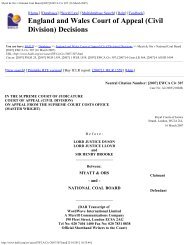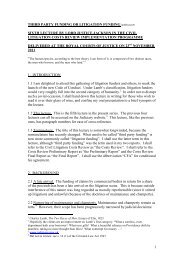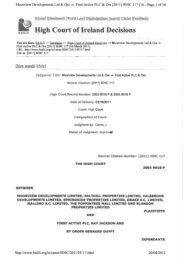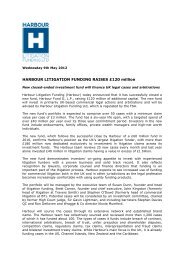[2013] SGHC 135 - Singapore Law Watch
[2013] SGHC 135 - Singapore Law Watch
[2013] SGHC 135 - Singapore Law Watch
You also want an ePaper? Increase the reach of your titles
YUMPU automatically turns print PDFs into web optimized ePapers that Google loves.
<strong>Law</strong> Society of <strong>Singapore</strong> v Kurubalan s/o Manickam Rengaraju [<strong>2013</strong>] <strong>SGHC</strong> <strong>135</strong><br />
chances of ultimate payment but this was on the supposition<br />
that the solicitor had honestly satisfied himself by careful<br />
inquiry that an honest case existed. [emphasis added]<br />
85 The High Court of Australia took a similar position in Clyne v NSW<br />
Bar Association [1960] HCA 40 (“Clyne”) (at [28]):<br />
And it seems to be established that a solicitor may with<br />
perfect propriety act for a client who has no means, and<br />
expend his own money in payment of counsel's fees and other<br />
outgoings, although he has no prospect of being paid either fees<br />
or outgoings except by virtue of a judgment or order against the<br />
other party to the proceedings. This, however, is subject to two<br />
conditions. One is that he has considered the case and<br />
believes that his client has a reasonable cause of action or<br />
defence as the case may be. And the other is that he must not<br />
in any case bargain with his client for an interest in the<br />
subject-matter of litigation, or (what is in substance the same<br />
thing) for remuneration proportionate to the amount which<br />
may be recovered by his client in a proceeding... [emphasis<br />
added]<br />
86 The cases of Ladd and Clyne were cited with approval by Ribeiro PJ in<br />
his judgment in Winnie Lo (at [108]–[109]), although the case was not decided<br />
on this basis. We agree with the sentiments expressed in the extracts we have<br />
just cited. If an Advocate and Solicitor has examined a client’s case and<br />
concluded in all honesty that there is a good cause of action or defence which,<br />
but for the client’s impecuniosity, would likely be litigated, then he would be<br />
doing no wrong if he took on such an engagement. This is so even if he knew<br />
that he would likely not be paid his usual fees or even his disbursements<br />
unless the claim succeeded or a costs order is obtained.<br />
87 In this regard, the Council of the <strong>Law</strong> Society has issued two relevant<br />
practice directions. Practice Direction 3 of 2004 states:<br />
1. Council considered and deliberated on the ethical propriety<br />
of a member agreeing with clients to only charge costs at an<br />
amount fixed as Party & Party costs for judgments in default<br />
43


![[2013] SGHC 135 - Singapore Law Watch](https://img.yumpu.com/37488807/43/500x640/2013-sghc-135-singapore-law-watch.jpg)
![Neutral Citation Number: [2010] EWHC 941 (QB) - Harbour ...](https://img.yumpu.com/47188668/1/190x245/neutral-citation-number-2010-ewhc-941-qb-harbour-.jpg?quality=85)
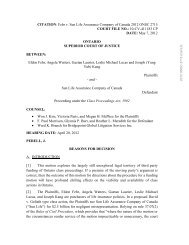
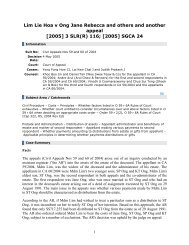
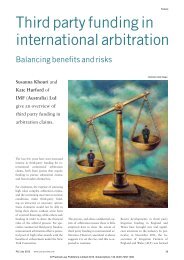
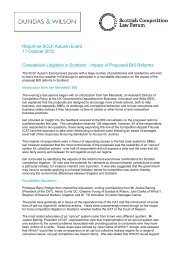
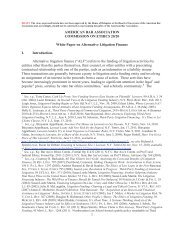

![Hall v Poolman [2009] - Harbour Litigation Funding](https://img.yumpu.com/37488843/1/190x245/hall-v-poolman-2009-harbour-litigation-funding.jpg?quality=85)
